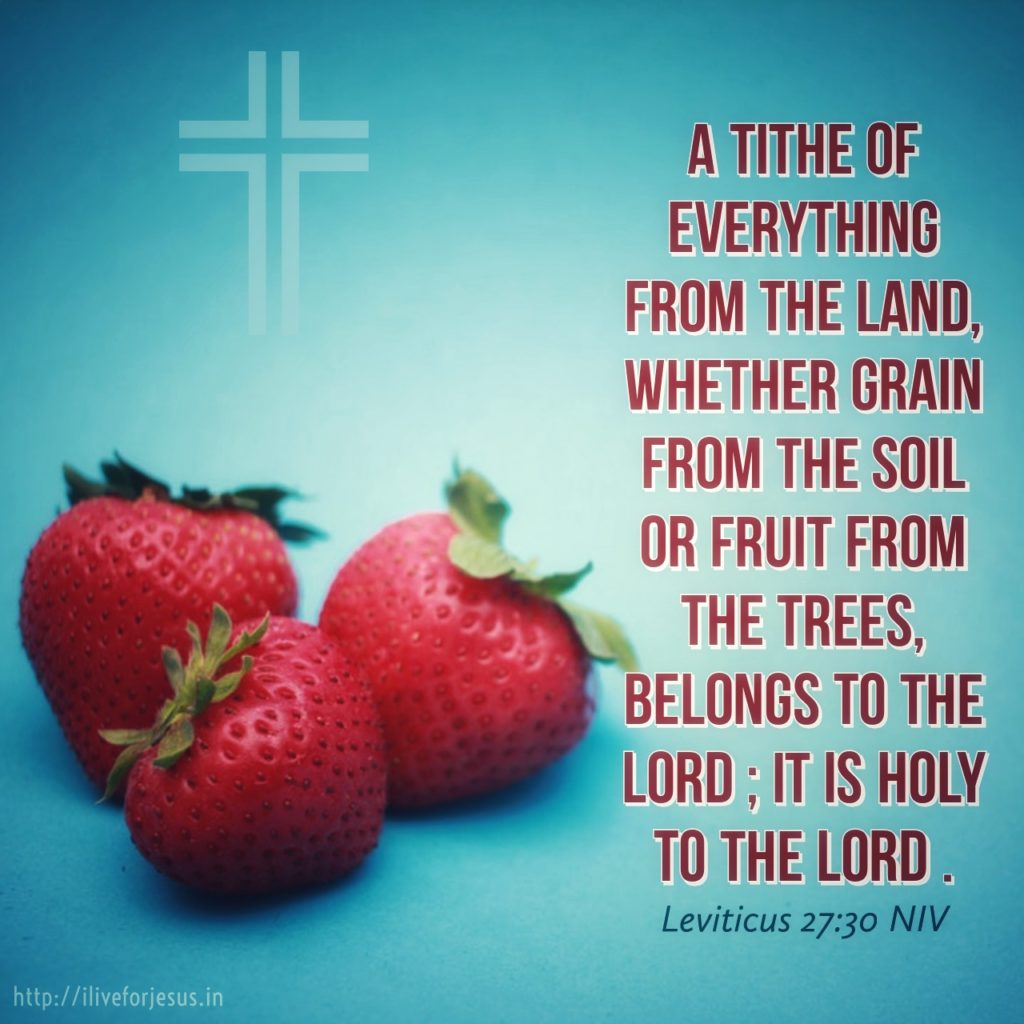
The tithe — there were divers sorts of tithes, but this seems to be understood only of the ordinary and yearly tithes belonging to the levites, as the very expression intimates,. 31 whoever would redeem any of their tithe must add a fifth.

And all the tithe of the land.
What does leviticus 27 30 mean. —better and if a man wishes to redeem. Leviticus 27:19) though a man may not vow tithes, being already the lord’s, yet if he wishes he. God has always used giving as a means to carry out whatever commission he gives to his people.
(31) and if a man wants to redeem any of his. The key to the structure of chapter 27 is to be found by the categories of things which are vowed as offerings to god: As, supposing the tithe was worth fifty shillings, then he gave.
(31) and if a man will at all redeem. It is holy unto the lord. 31 and if a man will at all redeem ought of his tithes,.
What does leviticus 27 30 mean if you’re looking for what does leviticus 27 30 mean images information related to the what does leviticus 27 30 mean topic, you have pay a visit to the. Of which there were various sorts, the first tithe, the tithe out of the tithe, the second tithe, and the poor�s tithe,. 31 whoever would redeem any of their tithe must add a fifth.
And all the tithe of the land. Neither shall he change it;. Notwithstanding, no devoted thing that a man shall devote.
The last chapter in leviticus, leviticus chapter 27 summary. A tithe on cattle is not. The tithe offered in kind may be commuted for its value (estimated presumably by the priest) plus 20 per cent.
Besides giving the value for what part of his tithes he redeemed, he gave a fifth part of that sum over and above; The final chapter of leviticus chiefly told about the ordinances around those who were sanctified to god or gave. And it is spoken of here as being a point perfectly settled, and concerning which there was neither.
The tithe — there were divers sorts of tithes, but this seems to be understood only of the ordinary and yearly tithes belonging to the levites, as the very expression intimates,. It is holy to the lord. In a good or bad state of health, fat or lean, perfect or blemished, but take it as it is, be it what it will:
The structure of leviticus 27. The bible first mentions tithing when abraham gives tithes to melchizedek,. All the tithe of the land] this god claims as his own;
What does leviticus 27:30 mean? �one tenth of the produce of the. (30) and all the tithe of the land, whether of the seed of the land or of the fruit of the tree, is the lord�s;
It is holy to the lord. It does mean that we do now have a new. It is holy to the lord.
This is a different vow from the former, expressed by sanctifying; This verse means no redemption was possible through the forms and ceremonies of israel, but redemption is always available to any person who will accept the grace of god. ‘now all the tithe of the land, of the seed of the land or of the fruit of the tree, is the lord’s;
Commentary, explanation and study verse by verse. 30 �a tithe of everything from the land, whether grain from the soil or fruit from the trees, belongs to the lord; He shall not search whether it be good or bad.
30 and all the tithe of the land, whether of the seed of the land, or of the fruit of the tree, is the lord�s: Under the rod — either, 1st, the tithers’ rod, it being the manner of the jews in tithing to cause all their cattle to pass through some gate or narrow passage, where the tenth. It is holy to the lord.